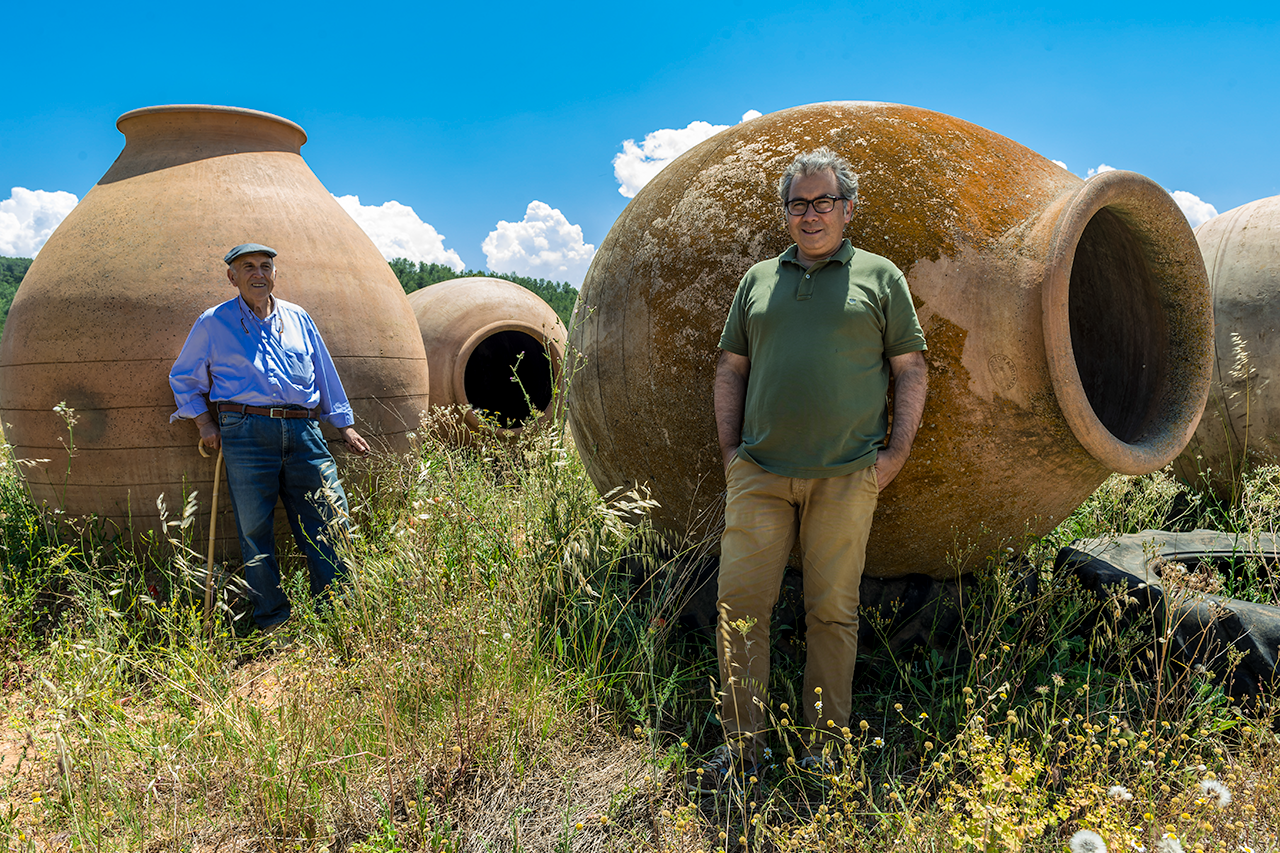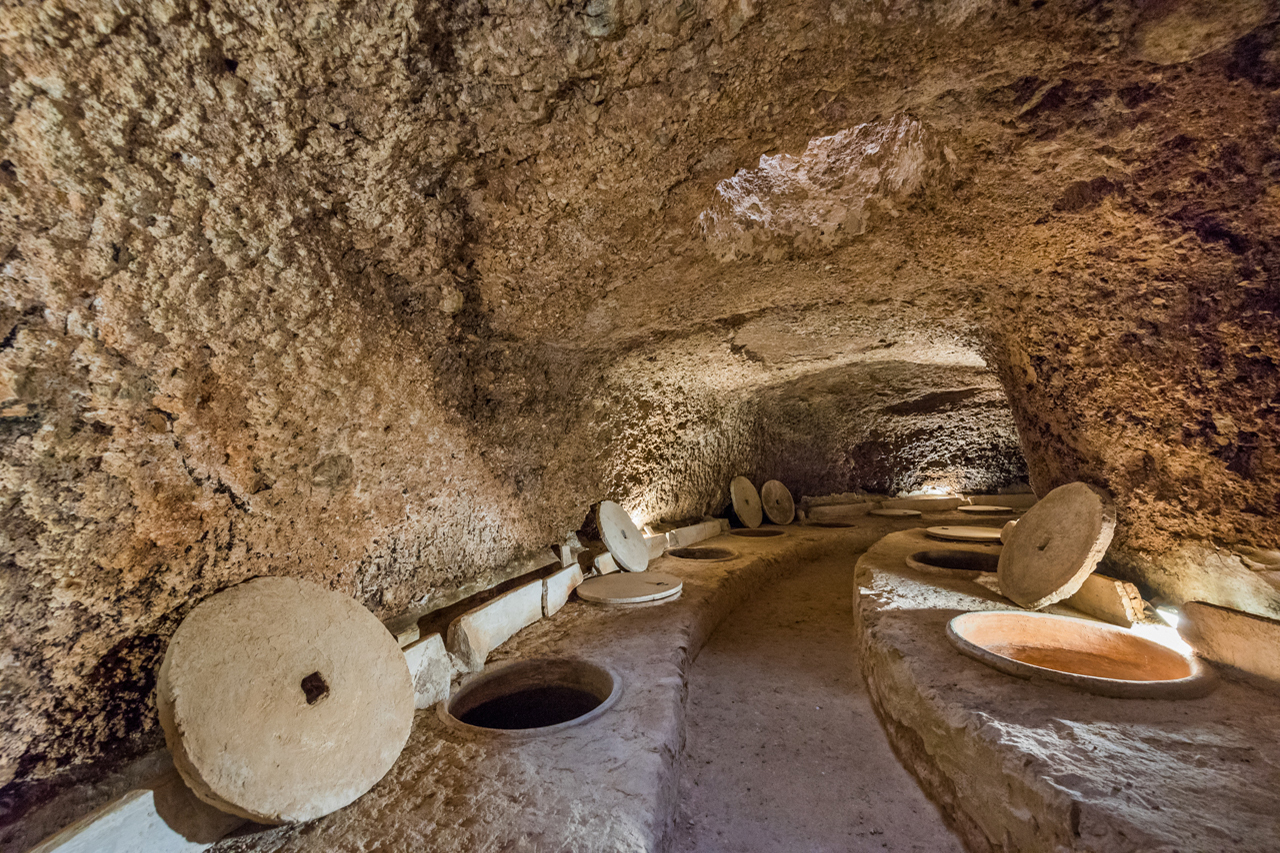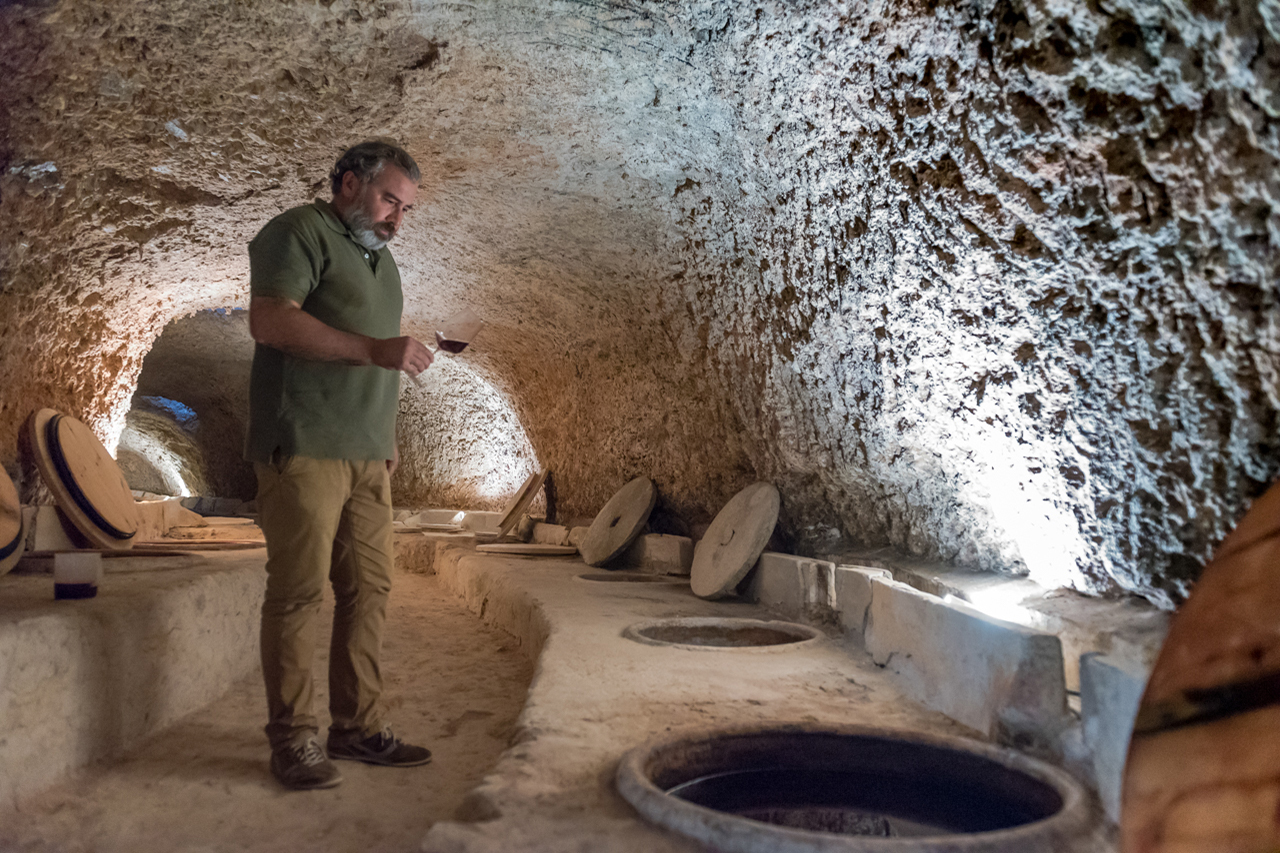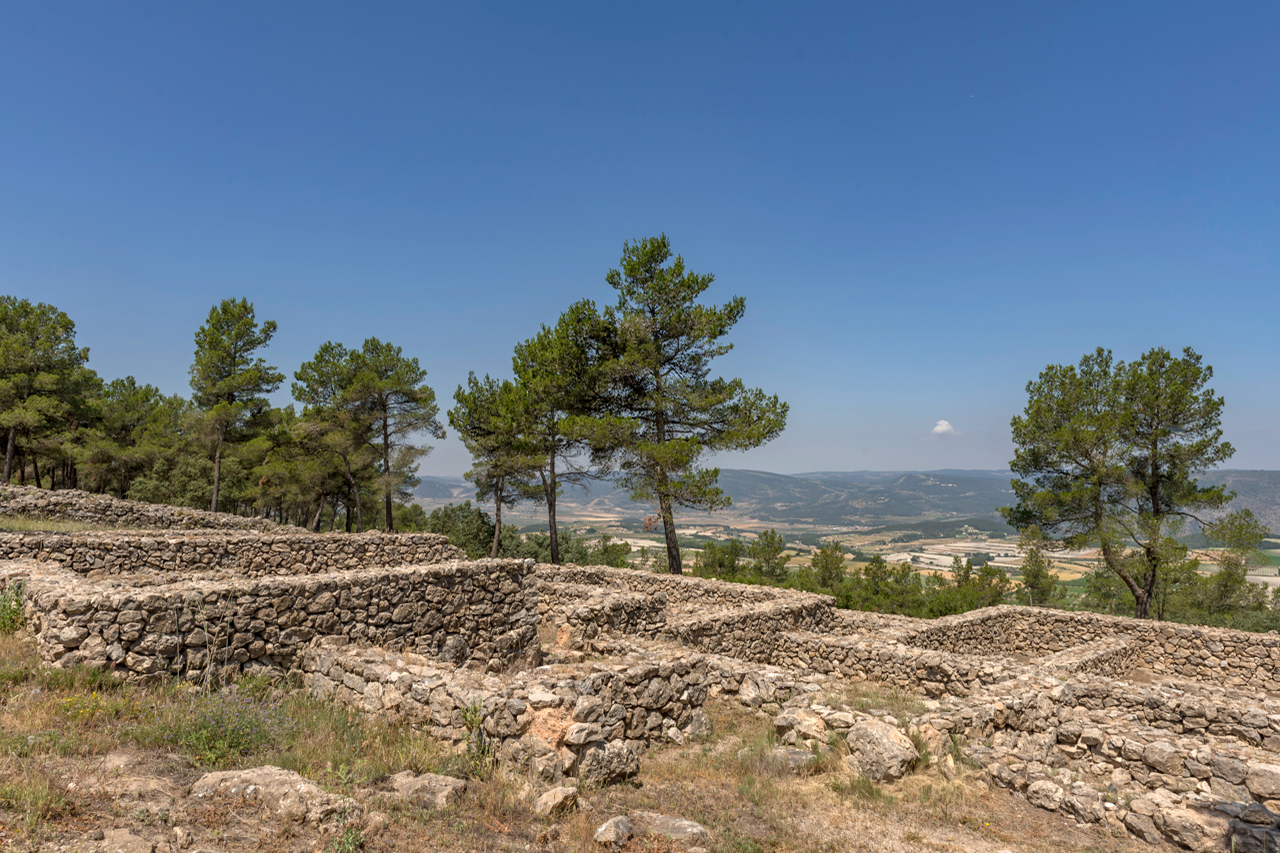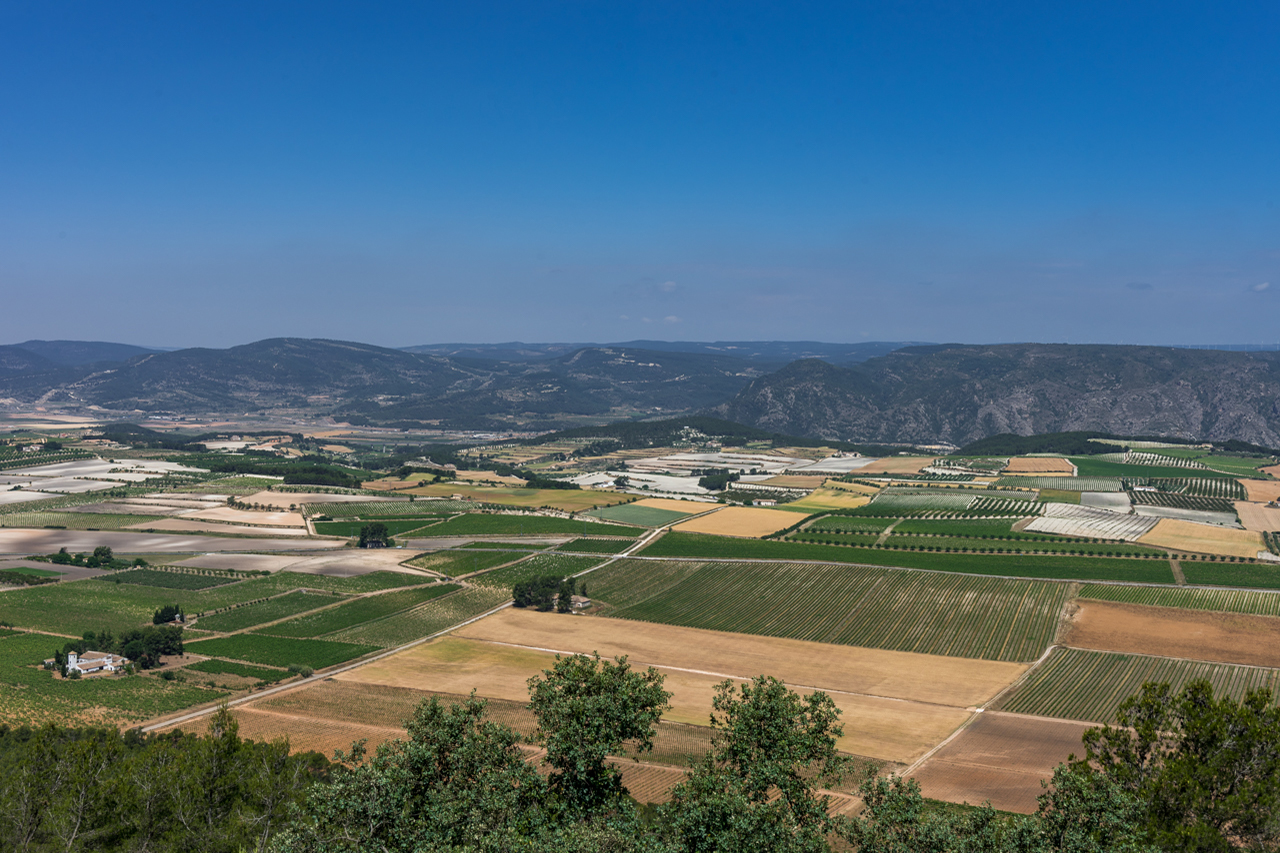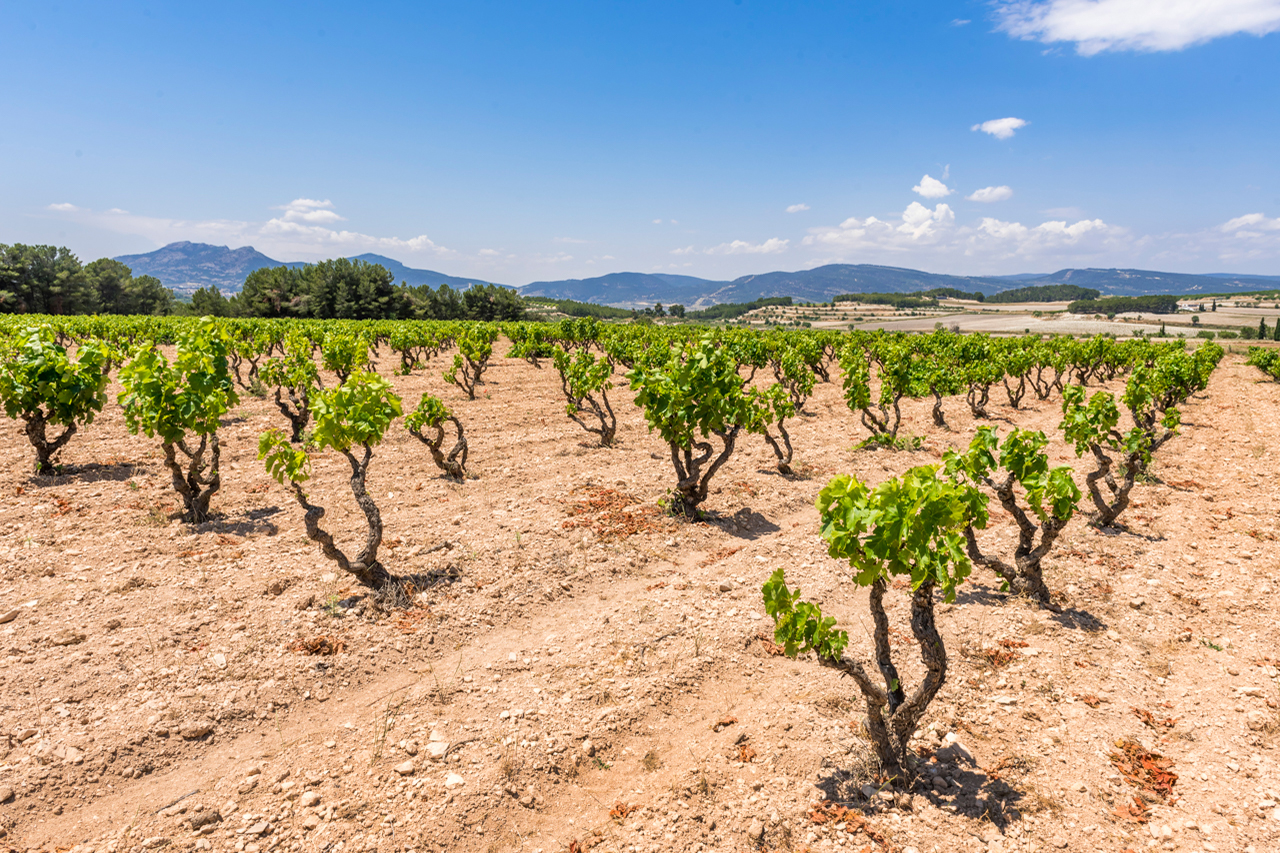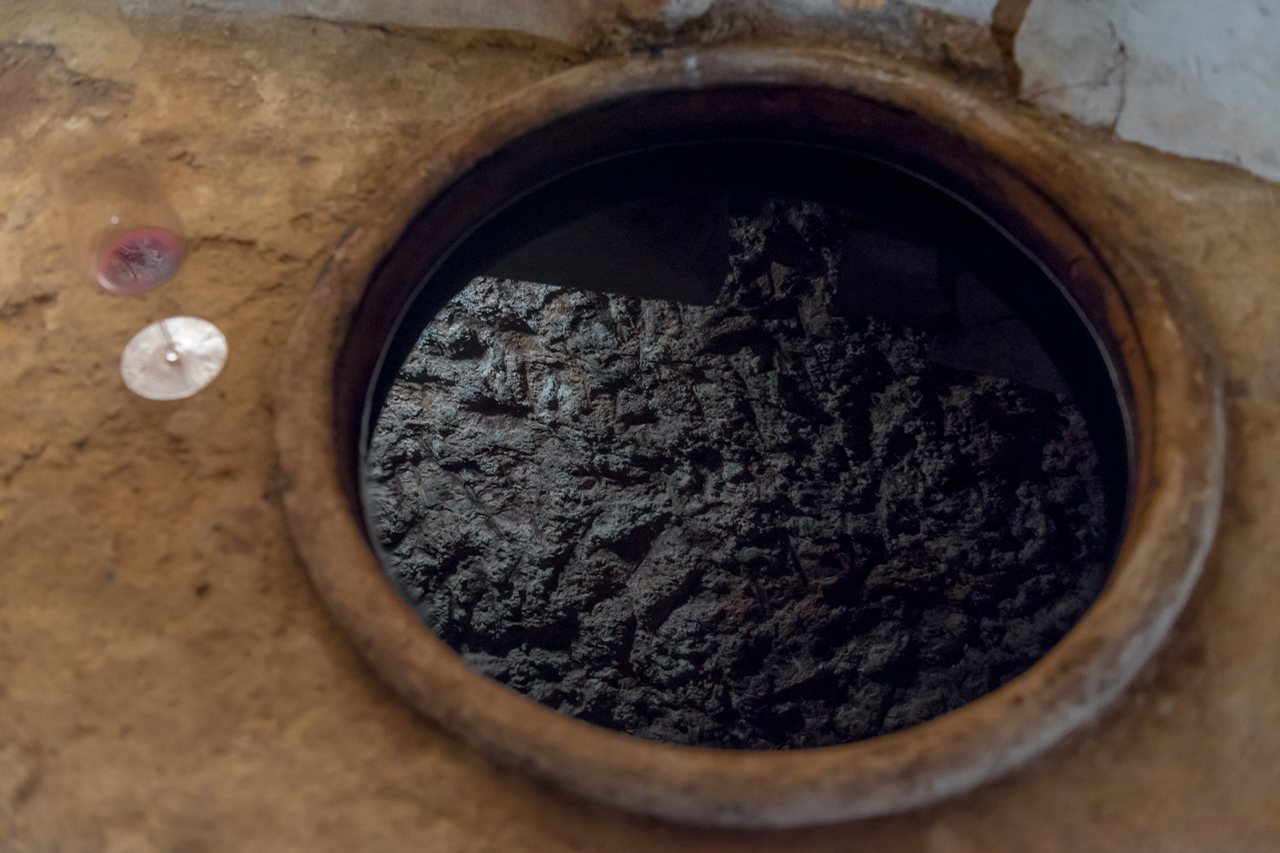

Everything old is new again. If you had visited Celler del Roure ten years ago, you would have been treated […]
Keep ReadingEverything old is new again. If you had visited Celler del Roure ten years ago, you would have been treated to a modern, minimalist, spotless cellar with assorted stainless steel tanks and new French oak barrels. After touring the current technology in viticulture, you would be taken on a tour of the ancient property, including a stone olive oil press, various outbuildings, and a subterranean cellar dug into the bedrock below the estate. This cellar afforded a glimpse of the winemaking practices from centuries ago, with winding halls lined with dozens of amphorae embedded into the earth, each with individual stone lids. Many are joined by stone channels carved into the rock, serving as the most rudimentary form of gravity flow. Some amphorae had cracked over the years, but a surprising number remained in perfect condition.
Pablo Calatayud was the earliest and probably only proponent of the local Valenciano variety Mandó. This signature variety was supplemented with non-native French and Spanish varieties not entirely suited to the terruño of Moixent in Western Valencia. Apart from the Mandó, the early wines were far superior to anything else being made in Valencia at the time, but perhaps not quite as expressive and unique as Moixent with its ruined Moorish castle above the winding streets and azure-domed church of Sant Pere, let alone the Celtiberian ruins of Les Alcusses and the 17th-century cellar below Pablo Calatayud’s modern one. So Pablo embarked on a quest to seek out old vineyards planted with heat and drought-tolerant varieties grown in western Valencia for countless generations – Monastrell, Arcos, Cariñena, Macabeo, Tortosina, Verdil, Merseguera, and Pedro Ximénez.
Such a complete and well-preserved artifact of viniculture would have remained an intellectual curiosity for most people, but Pablo saw it as an opportunity to explore how wines were made centuries ago and how they might have tasted. Once you meet Pablo and understand his connection with his homeland’s history and traditions, such an endeavor makes complete sense. Having sought out and increasingly promoted indigenous varieties, how could he not also champion indigenous viniculture? While their Vins Clássics are still made in the modern cellar (Les Alcusses & Maduresa), they also craft a range of wines, Vins Antics, aged in amphorae (Cullerot, Vermell, Safrà, and Parotet).
The Vins Classics are based on Monastrell, with Les Alcusses having 10% each Garnacha Tintorera, Petit Verdot, Syrah, Cabernet Sauvignon, and Merlot, while Maduressa is 80% Monastrell with 10% each Mandó and Carineña. The Vins Antics are blends of indigenous varieties, many unknown outside Valencia. For Cullerot, Pablo continues to seek out old vineyards of white varieties such as Macabeo, Tortosina, Verdil, Merseguera, and Pedro Ximénez with a little of the Chardonnay he planted 30 years ago. Vermell blends Garnacha Tintorera, with Mandó. Safra is a Mandó-based blend with Arcos, while Parotet is an Arcos-based blend with Mandó. Having mastered Mandó’s serious side, Pablo set out to prove that it can make equally joyous and satisfying rosats – a still wine and a sparkling. Named after Pablo’s mother, Les Filles d’Amàlia are a direct pressing of Mandó that has just reached ripeness, resulting in a pale salmon color, haunting aromas of roses and orange peel, and delicate white peach and red fruit flavors.
Pablo’s vineyards are farmed manually and are certified organic. Harvesting is done entirely by hand, and the grapes are placed in small crates to be transported to the cellar. Vine age ranges from 15 to 70 years old, and the soils are various clays – ranging from fine alluvial and loamy soils to rockier limestone terroirs. Increasingly, he uses more and more whole clusters in the fermentation, which are all spontaneous and start in stainless steel tanks or stone lagars before racking into French oak and amphorae. The results are wines with an insinuating and persistent sense of place with fruit and savory elements in perfect balance – whether aged in French oak barrels and foudres or amphorae.
Close
